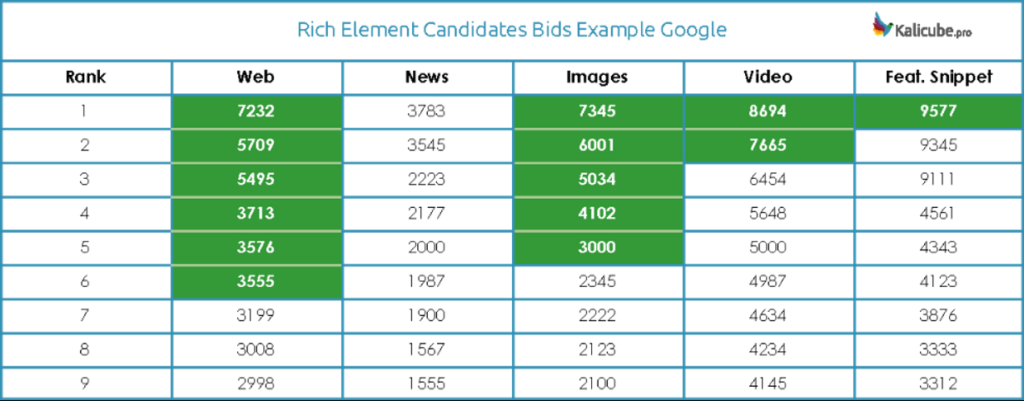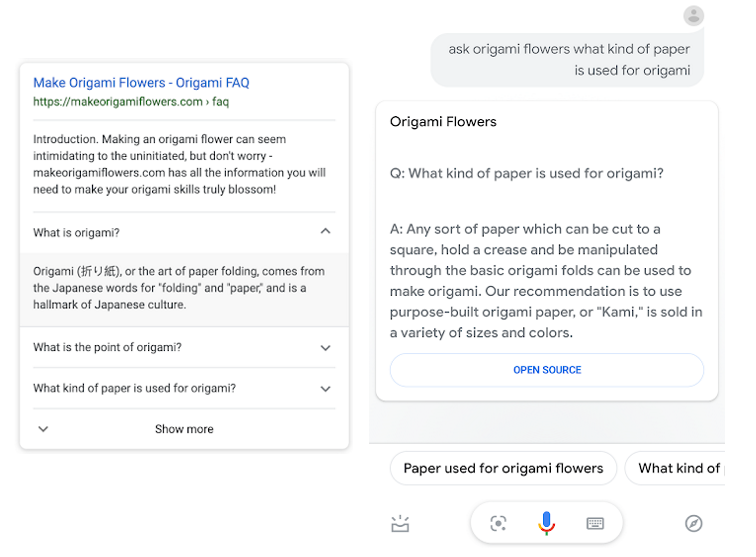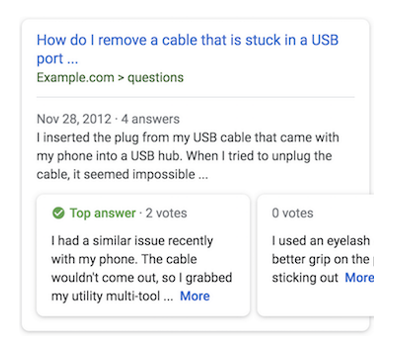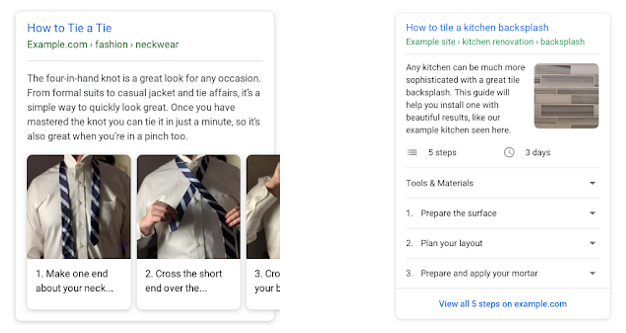Schema markup helps websites communicate better with search engines. Because of that it’s directly part of SEO and to drill down further, part of on page SEO. Schema can provide that extra bit of data that can help websites rank in position 0 via a rich results, above the position 1, page 1 rankings. It’s also been shown that schema is highly weighted when it comes to ranking keywords in general. Rich snippets serve the user better and allow for a preview of what to expect from the webpage.

Why Does New Schema Even Matter For SEO?

We’re always looking for new ways to provide the most relevant, useful results for our users. We’ve recently introduced new ways to help users understand whether responses on a given Q&A or forum site could have the best answer for their question. By bringing a preview of these answers onto Search, we’re helping our users more quickly identify which source is most likely to have the information they’re looking for. We’re currently working with partners to experiment with ways to surface similar previews for FAQ and How-to content.
Google Spokesperson
In the never ending competition for keyword ranking and the major focus on Google rankings. Any new competitive edge will be used or will be among the lowest hanging fruit to eventually be used to gain an advantage. So when Google focuses on something, many SEOs and webmasters listen. Beyond keyword research, content relevancy, and backlink optimization, the latest focus is on schema markup.
Currently that focus is on schema in general but even more recent is the focus on what’s new in structured data. Another main reason to care about schema for SEO is the fact that voice search is directly tied into structured data. It’s how voice search results even find the information related to the voice search. Voice search results only display one result, which means if you’re website isn’t ranking for even one rich result, you don’t get voice traffic.
How-Tos Schema
Informational content rules the internet, plain and simple. It’s the driving force behind much of the content out there. So it’s not a surprise to see How To schema markup get added. The race for the many rich results websites can now compete for via how to topics is on. In an age where voice search is standard in luxury vehicles and even some hotels, how to queries are about to pick up in usage.
The world is looking for “how to” information, and even if voice search isn’t something focused on, even desktop searches will be impacted. If you’re searching for info on “how to tie a tie” are you going to click further into a website you don’t know anymore? Not when you see a rich result showing you step by step numbered pictures of “how to tie a tie”. You might not even need to click into the site, which has always been an SEO fear eventually with Google.
Make sure not to mark up information that isn’t really information!
FAQs Schema

Every website wants to get any extra spot or even a spot on SERPs in some way. Many hope that even if they don’t rank a website for a keyword, that they can rank a featured snippet for a keyword instead or alongside. Well another variable to utilize to make that even more possible has been released. The FAQ schema will help at least Google decide if a website has the relevance and other SEO factors to be shown as a result in voice search FAQ page. The FAQ page provides a list of questions asked by the public and answers on a certain topic.
FAQ schema is only to be used for official questions and answers. Not forum based questions and answer websites, where users submit answers to user based questions. That type of content is what the Q&A page markup is for.
Q&A Schema

Sites like Quora are about to populate SERPs a bit more. User content in the form of question and answers is what Q&A schema was made for. From forums to question and answering sites to websites using the schema in crafty ways to display user questions. It’s important to remember that if you have a product or service and questions about that on the website, to use the FAQ schema. Since any questions related to a product or service answered by the product or service official are deemed FAQ.
Q&A schema is only for user submitted answers. This is a way to try and separate fact from opinion. So when someone does a voice search for a product they don’t hear some negative or false answer from a user on a website with good SEO. No matter the need, there is a schema markup available to make that data even more visible, so why not use it!
Is Your Website Using Schema Correctly?
Contact SEOByMichael for an SEO consultation and let’s discover and fix schema problems today!



